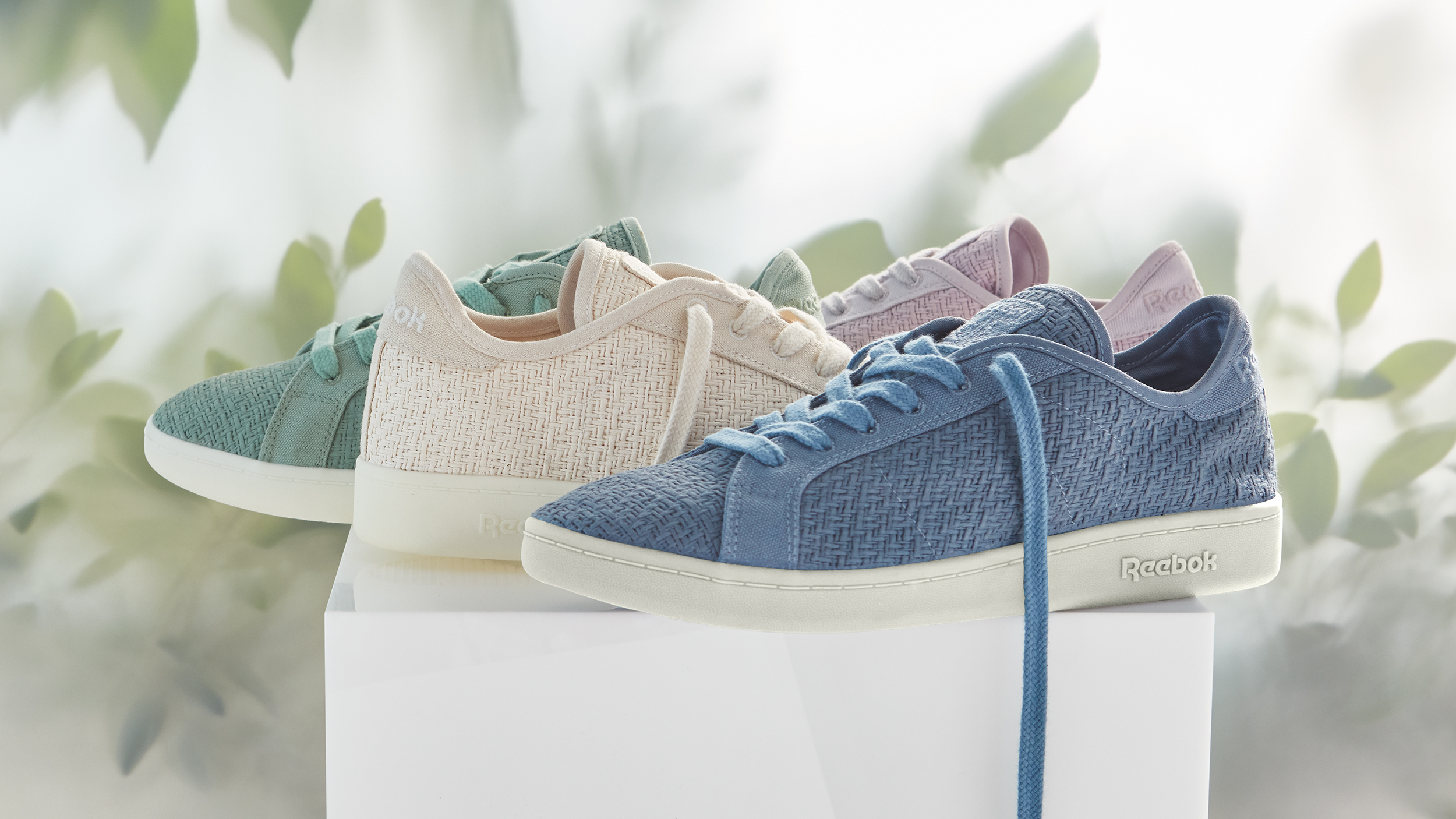Vegan Sneakers Set To Be Next Plant-Based Craze In 2020
(CNN) — Eco-friendly meatless food products shook up the fast-food industry in 2019. Experts say next year's game-changing trend in sustainable consumer goods may be plant-based — or "vegan" — athletic shoes.
Last week, Reebok, owned by Adidas since 2005, unveiled the design for its first plant-based running shoe, the Floatride GROW, which is expected to hit store shelves in the fall of 2020.
The upper part of the shoe is made primarily from eucalyptus. Its soles are made from castor beans and natural rubber. The scheduled debut comes two years after Reebok started selling a "vegan" version of its famed Newport (NP) Classic shoes made with cotton and corn. The more sustainable version of the NP Classics is "lifestyle" footwear not designed for athletic performance.
 In contrast, Reebok brand president Matt O'Toole says the Floatride GROW is sturdy enough to handle the wear and tear from intense and constant use by athletes.
In contrast, Reebok brand president Matt O'Toole says the Floatride GROW is sturdy enough to handle the wear and tear from intense and constant use by athletes.
"One of the challenges for the innovations team was [the Floatride GROW] had to be equal to or better to" the vegan NP Classics, O'Toole told CNN Business. "We actually have our own testing machines. The shoe holds up just as well as our other [athletic] shoes."
Reebok and Adidas are just two of the major athletic retailers vying to get in on the ground floor of what experts expect to eventually be a booming plant-based sneaker market, as discarded footwear fills up US landfills.
Americans throw away some 300 million pairs of shoes each year, according to the US Department of the Interior. Combined with discarded clothes, the EPA says those shoes accounted for roughly 8.9 million tons -- about 17.6% -- of the 50.7 million tons of trash that filled American landfills in 2017.
Most shoe waste is comprised of non-biodegradable plastic, leather and petroleum-based rubber, materials that take an average of 25 to 80 years to decompose naturally, multiple shoe companies told CNN Business.
In recent years, calls for climate change reform and for major corporations to engage in more sustainable business practices have created a niche market among young people who are interested in shoes that are more biodegradable.
In 2017, the global market for athletic footwear reached an estimated $64.3 billion, according to Grand View Research analysis, which concluded the market would increase by more than 5% by 2025.
A 2019 "future of footwear" study commissioned by the market research firm NPD found that Millennials and Generation Z, the primary consumers of athletic footwear, are "very concerned" about the environment.
"Our survey shows that consumers were concerned about where their shoes were made and whether or not they were made ethically," NPD senior sports industry advisor Matt Powell told CNN Business. "About 35% of respondents said they would be willing to pay more for a shoe sustainably made. While it isn't the entire market, that's certainly a category for growth."
Nike dipped its toe in the plant-based, athletic shoe waters a few months ago, with the limited release of a "100% organic" custom Nike Air Max 90. The industry leader in athletic footwear partnered with environmentally-conscious, UK streetwear brand Maharishi to create and raffle off pairs of its own "vegan" shoe in August for $150 apiece.
The shoes have been resold for as much as $1,446 per pair on second-hand retail sites.
Maharashi sales associate Miles Chick said the promotion's organizers were inundated with requests to enter the online raffle for Nike's vegan sneakers. "When word spread, it just started kind of ringing alarms in the vegan community," he said.
Nike says sustainability has been at the core of its business for decades but noted that recent research about climate change has compelled the company to change the way it makes and sells its shoes.
In 2015 and 2016, Greenpeace criticized Nike and a few other companies for failing to eliminate their use of perfluorinated chemicals (PFCs), which protect products from corrosion, but also make them more harmful to the environment.
In August, Nike, Adidas and Puma joined 30 other apparel companies as signatories on the G7 Fashion Pact, which French Prime Minister Emmanuel Macron unveiled at the annual G7 Summit. Nike has also committed to reducing its carbon footprint by 30% by 2030 through its partnership with the UN Framework Convention on Climate Change.
"We exist to serve athletes. ... We know that if there is no planet there is no sport," a Nike spokesperson told CNN Business in an emailed statement. "Advancing a more sustainable future requires companies of all sizes to think holistically, innovate solutions and adopt the principles of circularity."
Powell, the sports industry advisor, says the jury is still out on how many Americans will purchase shoes made from more sustainable materials over the versions they know and love.
"I think there's a whole lot of other things that go into what makes a shoe successful," he said. "The style has to be right and the shoe has to perform. Reebok knows how to make shoes. I'm pretty convinced this shoe will do well."
The-CNN-Wire
™ & © 2019 Cable News Network, Inc., a WarnerMedia Company. All rights reserved.